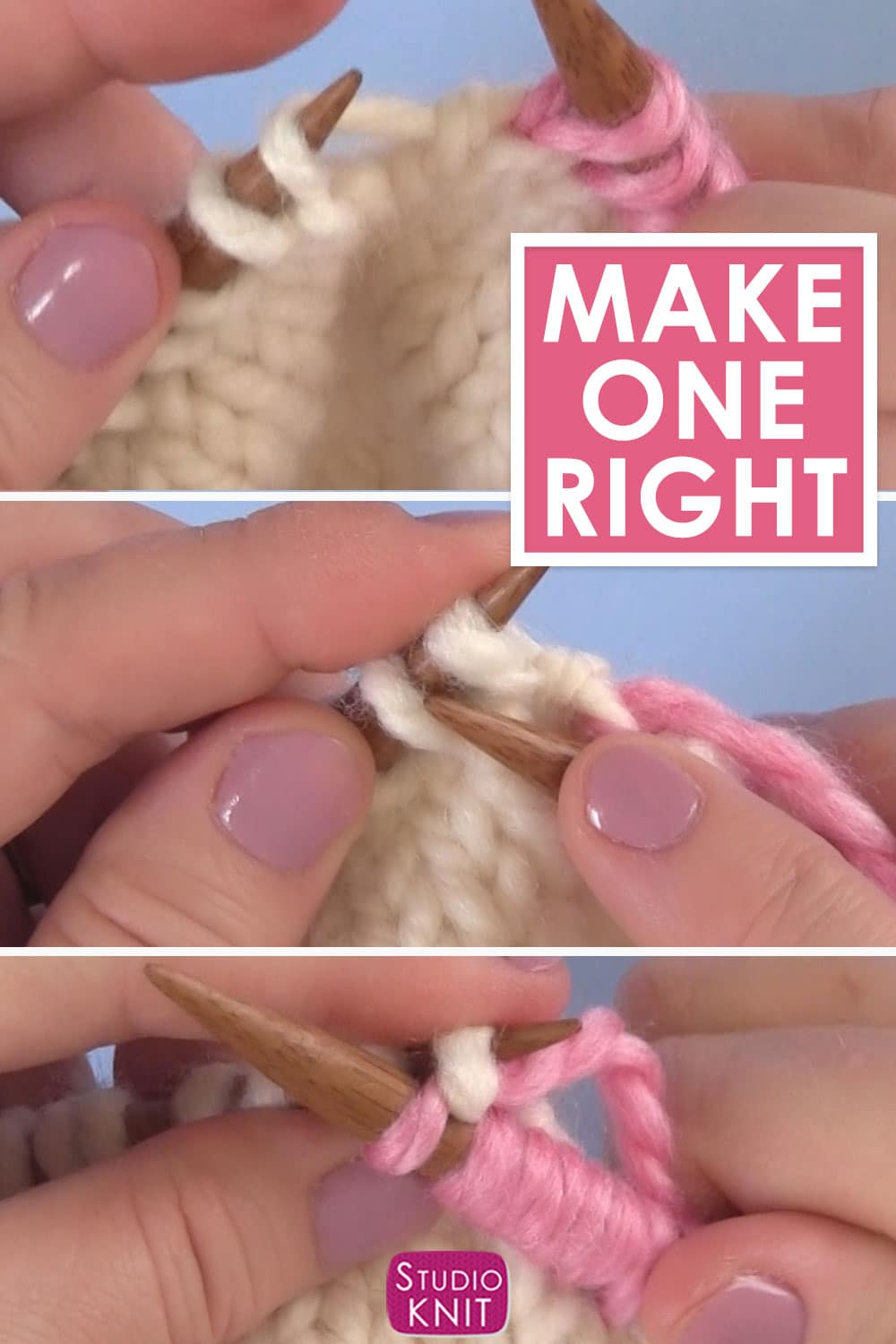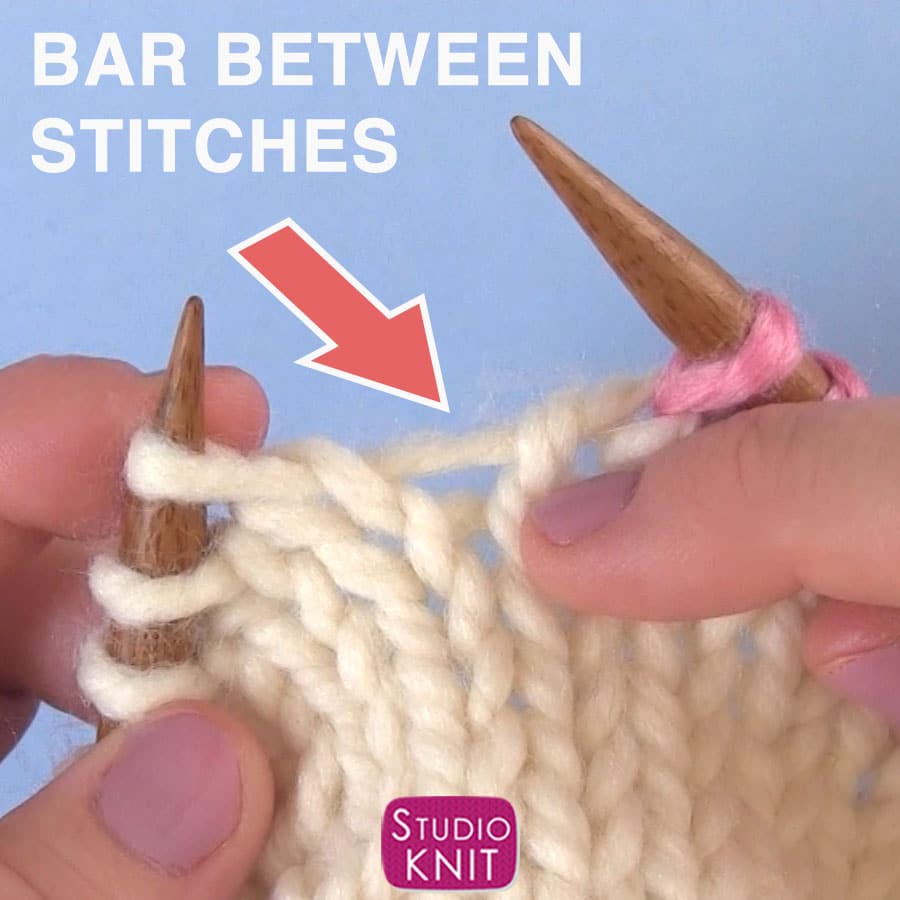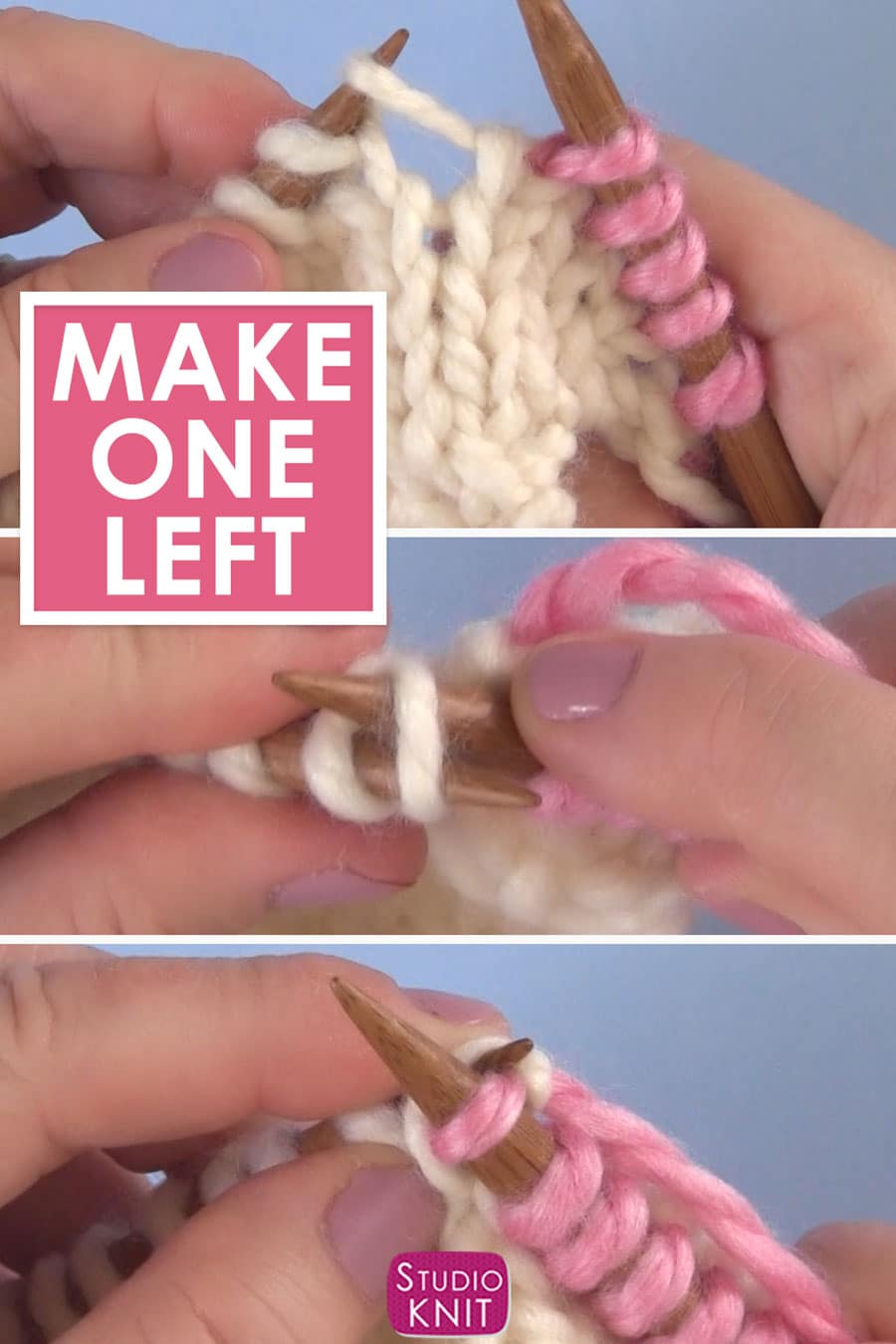Knitting Make 1 Increase
Knitting Make 1 Increase - As a result, it cannot be performed as the last or first stitch of a row. Basically, make one is an “afterthought yarn over” and just as easy to knit. Be sure to check what your pattern says, sometimes it will tell you if you should create a make 1 right or a make 1 left. Insert your left needle into the loop you just lifted coming in from the front. As a result, there needs to be at least one stitch to the left and the right. First of all, it’s an increase, which means you are adding a stitch. Make 1 increase are made up of the string that is between two stitch on the row previously created. This increase can lean to the left or to the right depending on which direction you pick up the new stitch. I earn a small commission for purchases made through links in this article. Knit the next stitch on your main needle. Complete the knit stitch in the usual way−1 increase made. Web make 1 is the most invisible increase in knitting. In the late 1950s when scientists first. Knit the next stitch on your main needle. It applies to all gains made by corporations and. Insert the right needle into the back of this lifted strand. You should be able to see a little strand connecting the two stitches one row below. It’s a great increase to have in your knitting toolbox! Web a make one increase (m1) is a standard increase found in knitting patterns. Left slant (m1l) and standard m1. The direction in which you pick up that bar determines whether the increase will lean to the right or to the left. Web make one increases are created by working into the strand in between two stitches on your knitting needles. Web what is a make 1 increase? The most basic way to increase is knitting in. Here's how to. Left slant (m1l) and standard m1. If a patterns asks you to simply m1, they are asking for the left slant m1. The make 1 increases are made by picking up and knitting the horizontal bar that falls between two stitches. Complete the knit stitch in the usual way−1 increase made. You should be able to see a little strand. Here's how to knit it. The slant is sometimes specified in the pattern as a left slant (m1l) or a right slant (m1r). This tutorial explains an increase method that involves lifting and working into the bar between two stitches. In this knitting instructions video, you will learn how to make an increase anywhere in your work. Web the make. Left slant (m1l) and standard m1. As a result, it cannot be performed as the last or first stitch of a row. In this knitting instructions video, you will learn how to make an increase anywhere in your work. In this video, jen lucas explains how to work the make one (m1) increase. It utilizes the running thread between two. A useful increase is the 'make 1'—usually abbreviated to 'm1' in patterns. Lift strand onto left needle. It’s a great increase to have in your knitting toolbox! Basically, make one is an “afterthought yarn over” and just as easy to knit. It utilizes the running thread between two live stitches to create a new stitch. You should be able to see a little strand connecting the two stitches one row below. Lift strand onto left needle. Web a make one increase (m1) is a standard increase found in knitting patterns. Web the make one right increase (m1r) technique is used to add stitches to your knitting and can be used any time a pattern calls. Learn how to increase 1 stitch by picking up the horizontal loop before next stitch and. In this video, jen lucas explains how to work the make one (m1) increase. It applies to all gains made by corporations and. As a result, it cannot be performed as the last or first stitch of a row. The most extreme storms can. Make 1 increase are made up of the string that is between two stitch on the row previously created. In this knitting instructions video, you will learn how to make an increase anywhere in your work. Web make 1 (m1) increase. Insert the left needle from front to back under the horizontal strand of yarn between the stitch just worked. The make 1 increases are made by picking up and knitting the horizontal bar that falls between two stitches. Complete the knit stitch in the usual way−1 increase made. Web there’s also there simple make one (m1) and a double increase called m2 where you perform this increase twice in the same stitch. Wool and the gang are a group of people who all. An m1 increase is formed between two stitches, using the length of yarn, or 'bar', that runs. A useful increase is the 'make 1'—usually abbreviated to 'm1' in patterns. Web make 1 is the most invisible increase in knitting. It can lean to the left or the right, and can be made on the knit or the purl side. It utilizes the running thread between two live stitches to create a new stitch. Take the working yarn and wrap your thumb around it, rolling your thumb over and towards you, creating a loop. The slant is sometimes specified in the pattern as a left slant (m1l) or a right slant (m1r). Insert the right needle into the back of this lifted strand. Web the probably easiest standard increase is called make one and creates a small eyelet. Basically, make one is an “afterthought yarn over” and just as easy to knit. This increase can lean to the left or to the right depending on which direction you pick up the new stitch. If you twist the new stitch as you make it, you avoid leaving a hole./M1_4-5ad10f1418ba010037438ea3.jpg)
How to Increase Stitches with Make One (M1) in Knitting

Make One Knitting Increase (M1, M1L, M1R) Studio Knit

Make One Knitting Increase (M1, M1L, M1R) YouTube
![M1L Knitting & M1R Knitting Increases [2 Easy Techniques]](https://knitting.com/wp-content/uploads/2023/01/IMG_1121-1024x1024.jpg)
M1L Knitting & M1R Knitting Increases [2 Easy Techniques]

How to Increase in Knitting Make 1 With Left Twist (M1L) An Annie’s

How to Make 1 Knitting Increase (M1, M1L, M1R) Knit stitch patterns

Make One Knitting Increase (M1, M1L, M1R) Studio Knit

Make One Knitting Increase (M1, M1L, M1R) Studio Knit

How to knit a make one increase knitting patterns by Amanda Berry

Knitting How to Make 1 M1 Invisible Increase Marly Bird™
In This Knitting Instructions Video, You Will Learn How To Make An Increase Anywhere In Your Work.
I Am Using The Schachenmayr Catania Grande In This Tutorial.
You’ll Find This Increase Used In Many Different Types Of Projects, Like Fingerless Mitts Or Mittens.
Web A Make One Increase (M1) Is A Standard Increase Found In Knitting Patterns.
Related Post: